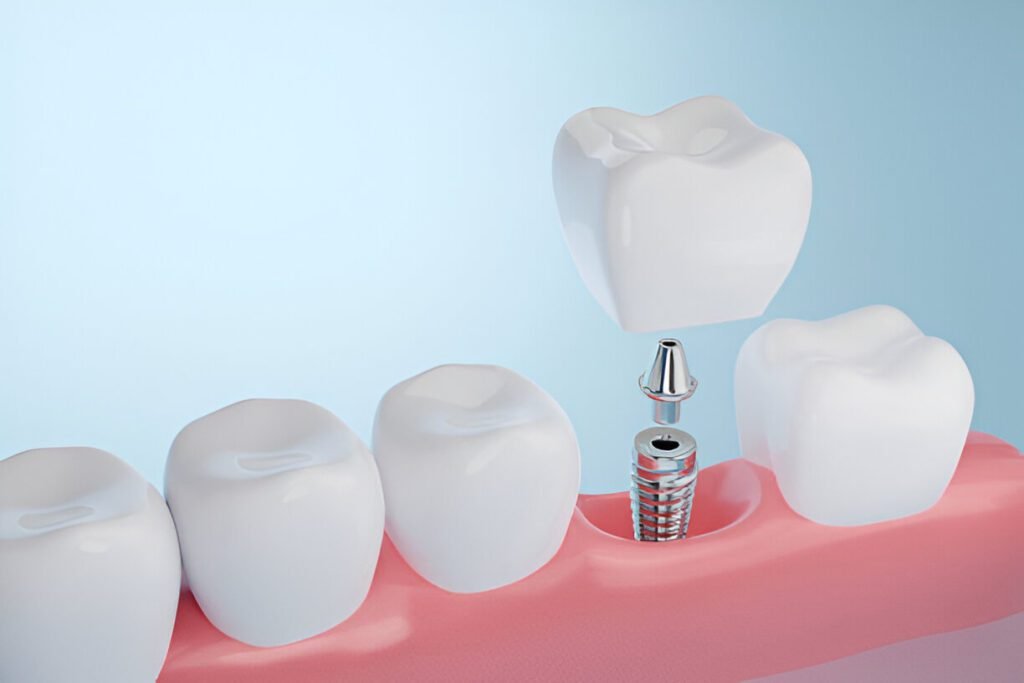Dental implants are often considered the gold standard for replacing missing teeth. They provide a permanent solution that looks, feels, and functions like natural teeth. However, the cost of dental implants in the UK can be prohibitive for many. Naturally, many people wonder whether the NHS can cover the cost of this treatment. In this article, we will explore whether the NHS pays for dental implants, the criteria for eligibility, and alternative options for those who may not qualify.
Are Dental Implants Covered by the NHS?
The short answer is yes, but only in specific circumstances. The NHS provides dental implant solutions Aberdeen to patients with a clear medical need. This means that while missing teeth is a problem, it alone may not qualify you for NHS-funded implants. The NHS prioritises patients based on their medical circumstances, meaning many who desire implants will not be eligible.
How Many Teeth Can One Implant Replace?
Eligibility Criteria for NHS-Funded Implants
To qualify for dental implants through the NHS, you must meet certain criteria. The NHS typically funds implants for patients who have experienced severe medical conditions that result in tooth loss. These conditions include:
- Cancer: If you have lost teeth due to cancer treatment, the NHS may cover the cost of implants as part of your recovery.
- Congenital Conditions: Patients born with missing or malformed teeth due to genetic conditions may be eligible for NHS-funded implants.
- Severe Trauma: Those who have lost teeth due to significant trauma may qualify, though traditional replacement options like dentures or bridges must first be explored.
While these criteria provide some hope, it’s essential to understand that even if you fall into one of these categories, approval is not guaranteed. The NHS operates under a limited budget, so they must prioritise cases where implants are deemed medically necessary.
How Much Are All-on-4 Dental Implants in the UK?
Additional Factors That Influence Eligibility
Aside from the primary criteria, other factors can influence your eligibility for NHS-funded dental implants. These include:
- Registration with a General Dentist: You must be registered with a general dentist and receive regular check-ups.
- Good Oral Hygiene: Maintaining good oral hygiene is crucial. You should not have untreated conditions like gum disease or tooth decay.
- Non-smoker: Smoking can impact your eligibility, as it affects oral health and implant success rates.
If you have poorly controlled diabetes, mental health issues, or blood or bone disorders, you may be declined for implant treatment. The NHS must ensure that the treatment will be effective and that the implants will be successful long-term.
How Long Do Dental Implants Last?
Understanding the Costs
Even if you qualify for NHS-funded implants, they are not completely free. The cost varies across the UK. In England, the charge is around £280, while in Wales, it’s £200, and in Scotland, it’s £380. These costs are per course of treatment, meaning whether you need one implant or multiple, the fee remains the same.
For many, these charges are manageable, but they can still pose a financial burden, especially for those requiring extensive work. It’s worth noting that after the initial five years, the NHS does not cover further implant-related costs. You would need to pay privately for any repairs or replacements.
Alternatives to NHS-Funded Implants
If you do not qualify for NHS-funded implants or prefer not to wait, there are alternative options to consider:
- Private Treatment: Many patients opt for private dental treatment, where implants can be customised to your needs. While this is more costly, private clinics often offer flexible payment plans, including 0% finance options.
- Dental Bridges and Dentures: While not as permanent as implants, these options can be more affordable and are often covered by the NHS for those who do not meet the criteria for implants.
- All-on-4 Implants: This method uses fewer implants to support a full set of teeth, potentially reducing costs. However, this is rarely available on the NHS, so it’s usually a private treatment option.
Making the Best Decision for Your Dental Health
Deciding on the best course of action for replacing missing teeth is a significant decision. While the NHS can offer support in specific cases, many patients find that private treatment provides the flexibility and customisation they need. Whether you qualify for NHS implants or not, it’s essential to consider all your options and choose the one that best suits your needs and budget.
Conclusion
Dental implants offer a long-term solution for missing teeth, but not everyone qualifies for NHS funding. Understanding the criteria and alternatives is crucial in making an informed decision about your dental health. If you’re considering dental implants, consult with your dentist to explore all available options and find the solution that works best for you.
Schedule Your Consultation Today!
Take the Next Step with Holburn Dental and Implant Centre
If you’re considering dental implants but unsure if you qualify for NHS funding, or if you want to explore private treatment options, Holburn Dental and Implant Centre is here to help. Our experienced team of dental professionals will guide you through every step of the process, ensuring you receive the best possible care tailored to your needs. We offer flexible payment plans, including 0% finance options, making it easier than ever to achieve the smile you deserve.
Book your consultation today at Holburn Dental and Implant Centre and take the first step towards a confident, healthy smile. We’re committed to providing exceptional dental care that you can trust.
Frequently Asked Questions
Who qualifies for NHS dental implants?
Those with severe medical conditions, such as cancer or congenital issues, may qualify. Patients must also have good oral hygiene and be non-smokers.
What if I don’t qualify for NHS dental implants?
If you don’t qualify, private treatment is an option. Private clinics offer flexible payment plans, including 0% finance, making implants more affordable.
Are dental implants free on the NHS?
No, NHS-funded implants are not free. Patients pay a standard fee based on their location, which covers the entire course of treatment.
Can smokers get NHS dental implants?
Generally, no. Smoking can affect oral health and implant success rates, so non-smokers are preferred candidates for NHS-funded dental implants.




